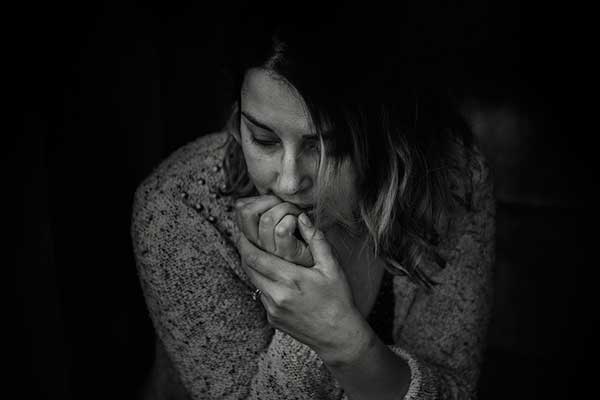Understanding self harm
Information and advice to help your child
For parents it can feel overwhelming to discover your child is self harming, as can trying to figure out what to do about it.
There is still a real stigma around self harm and it can be isolating for a young person and for their family. Children First Support line can offer non-judgmental support. We will always listen with kindness and give you the time and space to think through tough situations and make things better for your child.
Being able to give the right support to a young person when they reveal they have been self harming can make a big difference in helping them to heal and recover.
What is self harm?
Typically, self harming behaviour includes:
- cutting, scratching, burning
- pulling hair out, head banging
- controlling eating patterns
- swallowing damaging articles such as razor blades
- abusing alcohol and drugs/ medication.
Some injuries caused by self harm may need medical attention.
If you think a child or young person is self harming, you may notice:
- they have unexplained cuts and bruises
- they’re wearing long sleeved clothes, especially in warm weather
- they have knives or razor blades (or these going missing)
- unexplained blood stains on clothes or towels
- your child becoming more withdrawn and closed off
- changes in their mood and behaviour – e.g. angry or low mood.

Why do young people self harm?
It may seem negative and self-destructive to hurt or injure your body, for some young people it is a way of coping. Self harming may seem like the only way of dealing with and releasing unbearable or distressing feelings. It may make your child feel better (even for a short time) and it may be one area in their life they feel able to control.
Young people who self harm often talk of feelings such as fear, guilt, anger, shame, helplessness and self-hatred. They may struggle to cope with their thoughts and feelings.
Self harm affects children and young people across society – including those who live in stable, happy homes and ‘appear to have everything’.
Some reasons for self harm include:
- stress, anxiety, mental health issues
- bullying
- abuse
- social pressures and expectations, including appearance and body image
- identity and relationships
- the death of a parent or someone close
- parents separating or divorcing
- being under pressure, for example, exams.
While there are many reasons why young people self harm, often they won’t know exactly why they do it or be able to put it into words. All they know is that it makes them feel better.
One of the biggest myths about self harming is that it is ‘attention seeking’. Most young people will go to great lengths to keep it hidden and secret. Young people who self-harm can feel a lot of shame.
Finding out that your child is self harming will likely cause you to feel a huge amount of conflicting emotions – shock, guilt, anger, disgust, panic, disbelief or helplessness.
If you can, try not to overreact, show anger or add to their feelings of shame and guilt. It's really hard, but try to understand your child’s reasons for self harming and not just the behaviour. Your child is hurting and of course you want to make them better.
And despite it taking every ounce of strength you have and it being the one thing you want to say, don’t ask them to stop. They won’t until they are ready to, and this may be one of the few things in their life that they feel able to control.
If you have already told them to stop, don’t worry, it doesn’t mean the chance to support your child is lost. You can go back, be honest and try again.
What might help?
Here are a few suggestions parents have told us can really help:
- If you can, take time out before addressing the issue with your child. This may help you to come to terms with it and make the conversation calmer.
- Don’t ask or tell them to stop. It is likely to cause them to be more secretive about their harming.
- Acknowledge their distress and show you’re concerned.
- Stay calm and try not to rush to judgements or assumptions.
- Encourage them to talk, give them space and listen.
- Be honest. If you don’t know what to say, tell them you don’t know what to say – they probably don’t either. If you can be open and honest about your feelings, they might be too.
- If they are uncomfortable talking to you, encourage them to talk to someone they feel comfortable with.
- Try to avoid rushing in to fix it or give solutions.
- Don’t make it all there is. For example, don’t check their arms every five minutes or ask about it every day.
All you might be able to do is to keep the lines of communication open with the young person and talk to them. They may reveal their reasons for self harming over time, or they may not.
You might also be able to focus on reducing the harm. This could be about helping them to keep cuts clean, and gently introducing alternatives: some young people use a ‘pinging’ elastic band as a less harmful way to self harm, before they are ready to stop.
Get support
To talk through some of the feelings you may have and for ongoing support for you and your child, please contact us, at Children 1st Parentline for free confidential help and advice.
